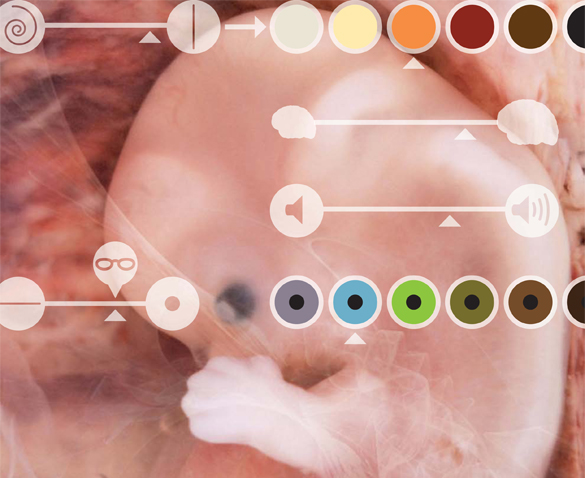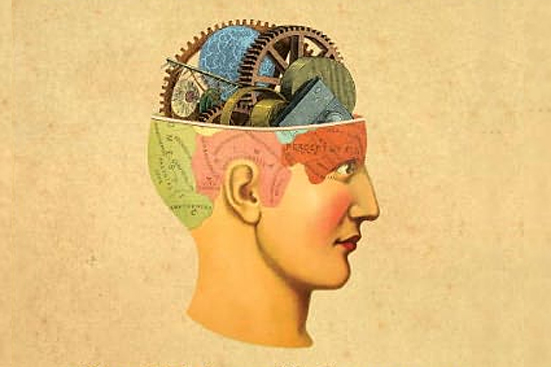Do you want to know the genetic destiny of your unborn child ?
In a few years scientists will have finalised the Human Genome Project, the charting of all genes that make up a human being. One could speculate that we have reached a point where we have evolved enough to direct our own evolution.
Reading the DNA of foetuses looks like it’s going to be the next frontier of the genome revolution. This year, Illumina, the producers of the world’s most widely-used DNA sequencing machines paid nearly half a billion dollars to Verinata, a company in California, which has the technology to sequence the DNA of a human foetus before it is born.
The testing is said to be non-invasive, safe and easy, and is seen as a breakthrough for Illumina, whose sequencing instruments have previously been used for lab research purposes. Jay Flatley CEO, Illumina, told investors he anticipates the tests will be offered to around two million women a year in the US.
This is likely to be just the start for the prenatal DNA sequencing programme, as pregnancy anxieties can be lessened, by enabling information through the mother’s bloodstream to present a foetus’s exact DNA code. Arthur Beaudet, Head of Human Genetics at Baylor College of Medicine, in Houston believes with early testing, patients wont need to have their genomes sequenced to shed light on potential genetic diseases, he says “we are already going to know the data at birth.”
Dennis Lo, a Hong Kong scientist, estimated in 1997 that DNA particles were present in pregnant women’s blood, carried through from the placenta, and predicted that these fragments contained a wealth of information.
All it would take is a simple blood test, resulting in the entire genome of a foetus, every gene and chromosome known about a baby’s genetic make-up, whilst still in utero. Positively, it could help to reduce carriers of terrible childhood diseases, such as Tay-Sachs, and Thalassaemia B.
Negatively, there are some serious ethical questions that need addressing. For instance, how would this available pre-natal genetic data affect our choices as parents? How far would we go to eliminate unwanted traits in our unborn child?
Is this already sounding like a scene in Gattaca?
In the film a genetic database uses biometrics to classify people. The story highlights concerns over reproductive technologies and their consequences.
Arthur Caplan of the New York Medical Centre highlights and expresses why he is apprehensive over technology which appears to facilitate eugenics, “anyone who thinks that information that can lead to abortion, isn’t going to be controversial, has been asleep since Roe and Wade.”
How do we control a situation with issues already apparent?
David Collingridge’s well-established paradigm lies at the heart of all deliberation on new technology and its impact. As he suggests, when a technology is new, it’s hard to predict its negative consequences; by the time they’re known its either costly or the technology has become entrenched. It’s a double bind, early detection isn’t possible, and later it’s not feasible. He advocates a new approach in achieving control, by way of “corrigibility” whereby bad decisions can be easily corrected, by choosing systems, which can be simply controlled and by maintaining a wide range of alternatives.
A report written by scientists at The Hastings Centre, expresses concerns that demand immediate attention, such as privacy and genetic ownership of data,
“the ethical issues raised by the use of this technology in the research context have received some significant attention, but little has been written on its use in the clinical context, and most of the this analysis has been futuristic forecasting.”
Are we heading toward a Utopian world or Pandora’s Box?
Pre-natal sequencing raises some serious moral and ethical issues, and dilemmas. The main one seems to be whether we are heading towards social engineering and a eugenics programme, where only the perfect may be born. Evolution in progress? As Henry Greely professor at Stamford says, “once you’ve opened Pandora’s Box its harder to close it.”
David Collingridge believes uncertainty and decisions made in ignorance can be assisted by choosing systems that respond to error, and by monitoring; more than just evaluating the effectiveness of a system, but by an ongoing “scrutiny of a decision’s real consequences with the aim of finding error.”
Ilana Yurkiewicz, Harvard student, takes up an interesting perspective in her post by asking is this unnatural selection – a triumph for freedom or just plain discrimination. She raises some valid arguments “are our prejudices so overpowering that we’d pick abortion over a child with the ‘wrong’ eye colour.”
What is it to be human?
Susan Lindee, in The DNA Mystique, examines how ‘gene talk’ has pervaded our society. She suggests the biological structure has become a cultural icon, and ultimately this ‘genetic essentialism’ as she calls it, diminishes us as humans, to molecular entities.
Here Lindee also believes that genetic intervention could be potentially transformative, however “long term damage, is also extremely likely, given the historical patterns of dramatic technological innovation.” Maybe Collingridge’s idea of “incrementalism” where slower rates of development give a better understanding of the risks, could prevent grim consequences.
Kevin Kelly believes forecasting new technology is challenging because so many ideas develop on a daily basis,
“we think genetic testing is like blood testing, something you do once in your life, to get an unchanging score, when sequencing our genes may instead become something we do hourly as our genes mutate, shift and interact with our environment.”
A little food for thought…
If we are destined for a future where people’s life opportunities are principally determined by their genetic make up, will we ever see the likes of people like this: Abraham Lincoln – Marfan Syndrome; John F Kennedy – Addison’s Disease; Albert Einstein – Dyslexia; Ray Charles – Primary Glaucoma; Stephen Hawking – Amyotrophic Lateral Sclerosis.



